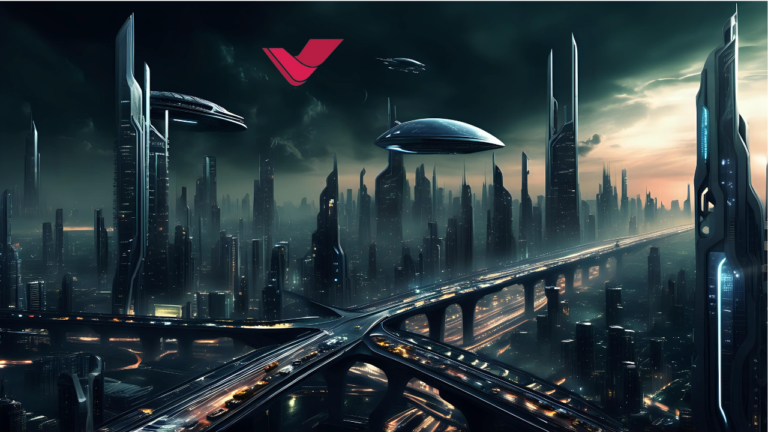In the tapestry of literary and cinematic genres, the concept of a dystopian society stands out as a stark, thought-provoking contrast to the idyllic visions of utopia. The term “dystopian” evokes a world where the cracks in human civilization are not just visible but are gaping fissures through which the darker elements of humanity’s psyche spill out. This article delves deep into the essence of dystopia, exploring its origins, manifestations in culture, and the poignant reflections it offers on our world.
The Genesis of Dystopia
The roots of dystopian thought can be traced back to ancient literature, but it was during the 20th century that the concept truly crystallized into the genre we recognize today. The term “dystopia” is often attributed to John Stuart Mill, who, in a parliamentary speech in 1868, contrasted it with “utopia,” the term coined by Sir Thomas More in 1516. Where utopia stands for a perfect society, dystopia represents its antithesis – a world marred by suffering, oppression, and a pervading sense of hopelessness.
The early 20th century, marked by global conflicts, totalitarian regimes, and rapid technological advancement, provided fertile ground for dystopian narratives to flourish. Authors began to speculate about futures where humanity’s progress led not to enlightenment and prosperity but to degradation and despair.
Literary Landscapes of Dystopia
Dystopian literature offers a mirror, albeit distorted, to our realities, reflecting societal fears and ethical quandaries. Classics like George Orwell’s “1984” and Aldous Huxley’s “Brave New World” stand as towering monuments in this genre, each offering a unique vision of a future where the very essence of humanity is compromised.
Orwell’s “1984” introduces us to a world of perpetual surveillance, where the government, symbolized by the omnipresent Big Brother, exercises absolute control over information and individual freedom. In contrast, Huxley’s “Brave New World” presents a society numb with pleasure, where people are bioengineered and drugged into a state of blissful compliance, devoid of personal identity or emotional depth.
Whilel futures, these narratives athese narratives re grounded in the aauthor’sacute observations of their t. They serve as cautionary tales, warning what ht become if humanity’s darker tendencies are left unchecked.
Dystopian Cinema: Reflecting Societal Anxieties
The silver screen has also been a potent medium for exploring dystopian themes. Films like “Blade Runner,” “The Matrix,” and “The Hunger Games” have brought dystopian visions to life, captivating audiences with their portrayal of worlds where society has veered off the course of ideal human existence.
“Blade Runner,” with its noir-infused depiction of a future Los Angeles, raises questions about identity, memory, and the nature of humanity itself. “The Matrix” explores the concept of reality, trapping humanity in a simulated world as a form of subjugation. Meanwhile, “The Hunger Games” presents a starkly divided society, where the brutal exploitation of the marginalized sustains the opulenceluxuryruling class.
Much like their literary counterparts, these films use dystopian settings to critique contemporary issues, from environmental degradation and corporate greed to surveillance and the erosion of personal autonomy.
Dystopia as Social Commentary
The enduring appeal of dystopian narratives lies in their ability to comment on the present by projecting our fears and flaws into the future. They act as a lens, magnifying the consequences of our actions and choices, often extrapolating the trajectories of current social, political, and technological trends to their most extreme outcomes.
Dystopian stories challenge us to examine the ethical dimensions of our society, questioning the balance between security and freedom, individuality and conformity, and the role of technology in our lives. They prompt us to consider the cost of progress and the definition of humanity itself.
The Role of Dystopia in Modern Culture
In the 21st century, dystopian themes have permeated popular culture, reflecting our anxieties in an era of rapid change and uncertainty. From literature and film to video games and television, the dystopian narrative has become a canvas for exploring the complex challenges of our time.
The popularity of dystopian stories in contemporary media underscores a collective fascination with the “what ifs” of our future. It reveals a society grappling with its identity, values, and destiny, using dystopian tales to explol futures and the path humanity might take.
Conclusion: Embracing the Shadows to Find the Light
With their grim portrayaas ls of the falogueratives serve a critical fuare criticalalogue. They remind us of the fragility of our societal structures and the perpetual tension between chaos and order, freedom and control, progress and ethics.
While dystopian stories often present a bleak outlook, they also embody a paradoxical sense of hope. By illustrating the extremes of human folly, they encourage us to reflect, question, and ultimately chose a different path. In the shadows of dystopia, we are invited not to despair but to imagine and strive for a world that transcends the limitations of our fears and flaws.
In embracing the dystopian genre, we confront the darker aspects of our nature and our civilization, not to succumb to them, but to understand and overcome them. Thus, the journey through the dystopian landscape becomes not just an exploration of fictional worlds but a meaningful quest to reclaim our future, ensuring that the dystopian visions remain within the realm of fiction, never to be realized in our reality.
Read More: Exploring the Digital Artistry of @7_jgray: A Journey Through Innovative Creations.


